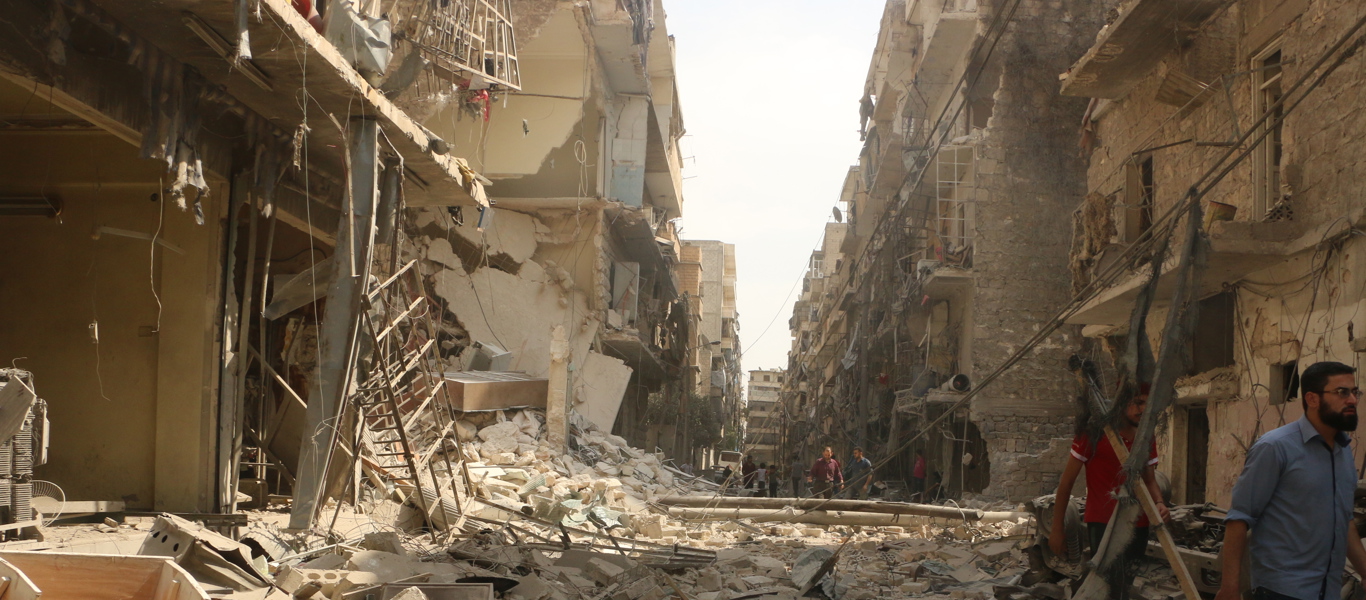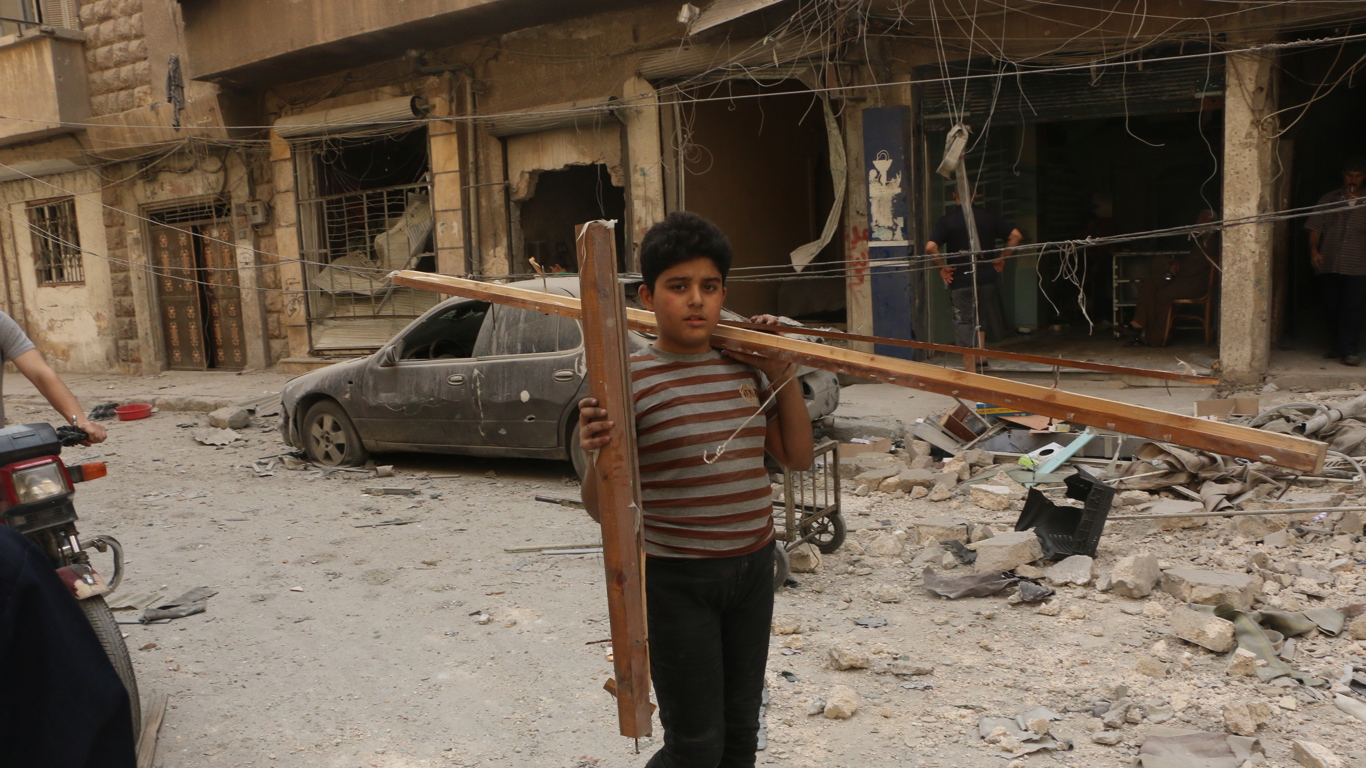
99% Of Syrian IDPS & 73% of Syrian Refugees Have PTSD Symptoms
A report into the prevalence of PTSD symptoms amongst IDPs and refugees from the Syrian conflict.
We can reveal today (Monday, March 1st 2021) research which shows 99% of Internally Displaced Persons (IDPs) in wartorn Idlib, Northwest Syria have symptoms of Post-Traumatic Stress Disorder (PTSD). The research also shows74% of Syrian refugees in Lebanon and 76% of Syrian refugees in Turkey also have PTSD symptoms. Syria Relief are labelling this “the Syrian PTSD crisis.”
The report, The Destruction You Can’t See: A report into the prevalence of PTSD symptoms amongst IDPs and refugees from the Syrian conflict, released today can be found here.
The Destruction You Can’t See: A report into the prevalence of PTSD symptoms amongst IDPs and refugees from the Syrian conflict finds:
-88% of the 721 respondents from different locations in Idlib, Syria, Beqa’a Valley, Lebanon and Istanbul, Hatay, Gaziantep and Kilis, Turkey have symptoms compatible with PTSD-All but 2 of the 393 respondents (IDPs) in Idlib (99%) have PTSD symptoms-76% of respondents in Turkey and 74% in Lebanon (refugees) have PTSD symptoms-Of the 15 possible symptoms, 42% of people have experienced at least one life threatening event and have 10 or more PTSD symptoms (37% in Idlib, 50% in Lebanon, 52% in Turkey) and 84% have 7 or more symptoms (88% in Idlib, 73% in Lebanon, 80% in Turkey)-When it comes to analysing what percentage of people believe that there is mental health support available to them, refugees in Turkey report to have better access to mental health services, where 64% of people reported that there is some mental health support available to them. Compare this to refugees in Lebanon, where only 15% believe there is some mental health support available and IDPs in Idlib where only 1% say this-Female respondents suffer from more symptoms than males. 52% of females who have experienced at least one life threatening event have 10 more PTSD symptoms, and 88% have seven or more, compared to 37% of males who have 10 or more and 84% who have seven or more-Under 18s are more likely to develop symptoms of PTSD being born into and living in an active warzone, than refugee children (100% of under 18s in Idlib have PTSD symptoms, compared to 60% in Lebanon and 69% in Turkey)
Charles Lawley, the author of the report and Syria Relief’s Head of Communications and Advocacy, says:
“When asked to imagine the damage done by war, the pictures that come to mind are usually destroyed buildings, walls covered in bullet holes, people fleeing from burning towns and cities. Over the past 10 years, Syria has been synonymous with these examples of concrete, tangible damage. However, after the guns and bombs have fallen silent and the buildings are repaired there is still lasting damage from conflict that rarely gets adequately rehabilitated as it is not visible - the mental scars of war in the minds of the people who have endured the brutal fighting.
“This report finally quantifies and gives a face to the Syrian PTSD crisis that many of us working with the victims of the Syrian conflict have long suspected. However, the results are worse than what we feared.
“Syria Relief, like many NGOs working inside Syria and the neighbouring countries, receive donor support to provide aid to treat the symptoms of the damage that you can see - food, water, education and physical health projects – but there is not currently the same will from donors to deal with this mental health catastrophe. We are hoping that now we can finally measure the impact of trauma on the victims of conflict, the aid community will be better supported to provide the psychosocial support that is clearly needed. We also hope that mental health first aid and a holistic response to conflict and crises can be taken and the psychological needs are also provided for.
“This conflict has touched every Syrian in some way. Our fear is that this will be the legacy of this conflict, when the bombs and guns eventually fall silent. For Syrian people, the mental scars will be bleeding long after the physical ones have healed.”
Syria Relief are calling for:
-Donor governments and international bodies to increase funding for mental health projects conducted by NGOs.-When responding to the humanitarian impacts on conflicts, as well as treating the visible damage to buildings and bodies, the aid community must also take into account the mental health impact. NGOs need to be supported in providing refugees with mental health first aid and holistic protection interventions, to ensure all basic needs are met, including mental health support.-Act immediately in order to stop the mental health crisis worsening.-All warring parties in the conflict and their external allies need to push for a cessation of violence and the protection of civilian life immediately, as the war is the root cause of this PTSD crisis.-The targeting of civilian life, which has traumatized the majority of Syrians, is a war crime and against international humanitarian law and international human rights law, there needs to be a real and considerable effort to find, try and bring to justice the perpetrators of the countless crimes against humanity committed in the Syrian conflict.-Integrate refugees into host communities in order to combat the poverty which exacerbates their mental health crisis.-Members of the public should write to their political representatives asking them to influence their government into doing more to support Syrian IDPs and refugees with mental health support through their aid budget.-The UK government should reverse plants to cut their aid budget and, instead, direct more funding to providing mental health provisions for victims of conflicts.-Members of the public can donate to Syria Relief’s Syrian PTSD Crisis campaign
The report has been published in March 2021, which also commemorates the 10th anniversary of the start of the Syrian conflict. Syria Relief collaborated with URDA (Union of Relief and Development Associations), UOSSM (Union of Medical Care and Relief Organisations) and Gavin Hallier MBACP (Reg) to collate the research.

